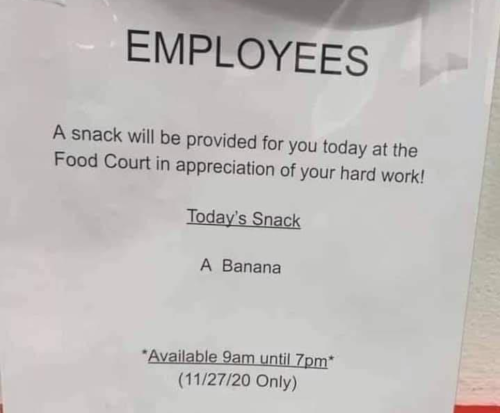304 Indian Trace, Suite 105, Weston, Florida 33326
Changing Attitudes About Work—Post-Pandemic and Beyond

A shortage of workers and the search for meaningful lives are impacting the job market
America is experiencing a phenomenon dubbed “The Great Resignation.” Millions of workers are quitting their jobs “in search of more money, more flexibility and more happiness.” Still others who were let go during the pandemic aren’t returning to their former positions now that restrictions have been lifted and demand is surging.
Many of these decisions reflect the workplace upheavals caused or accelerated by COVID-19. But they are also symptomatic of long-term trends, including an “always-on” culture that blurred work-life balance, a search for meaningful work, the shift to remote positions, and the rise of freelancing.
Many of today’s workers want something more—and employers are entering new territory as they attempt to satisfy them.
The old perception of work is long gone
Many people have heard a family member reminisce about the old days. They got a good-paying job, worked hard at it for years, and didn’t complain. These stories are true to some extent, accurately reflecting changing generational attitudes about work and a shift in power from employers to employees.
The tradition of staying with an employer for many years—even decades—gave way to far more rapid turnover decades ago. As Contributing Editor Amy Gallo wrote in the Harvard Business Review, the conventional wisdom established by the ‘90s was “stay in a job for at least two years.” Gallo also notes that diminishing loyalty to an employer was accelerating in 2015, years before the pandemic.
A 2018 survey by the staffing firm Robert Half found that 64% “of professionals polled think changing roles every few years can be beneficial, “a 22 percent increase” from its survey in 2014. Much of this shift was driven by millennials, who have been dubbed “The Job-Hopping Generation.” A 2016 survey by Gallup found that millennials were the “most likely generation to switch jobs,” and 21% of them had done so in the previous year—”more than three times the number of non-millennials.”
The same Gallup survey found that while millennial job hoppers often do it for better pay, they also want to find meaning in and enjoy their work while achieving work-life balance, priorities shared by younger Generation Y workers. These attitudes predated the pandemic and likely set the stage for its dramatic impact.

The effects of COVID-19
Millions of workers were let go when the virus hit, especially lower-paid service and blue-collar positions requiring in-person work. Other jobs that people could do remotely went offsite, and many individuals learned to prize this flexibility—and never looked back. These two elements are often cited as the biggest factors—along with generous government unemployment benefits—in the worker shortage and Great Resignation plaguing some industries.
Some sobering statistics illustrate this perception: amid a rapid economic recovery, “a record 4 million people quit their jobs in April, including 649,000 retail workers.”
There are signs this worker shortage is easing in the most recent July jobs report, but total “employment is still 7.6 million jobs lower than it would have been without the coronavirus pandemic that exploded in 2020.”
Why are workers quitting or not returning?
As with many things in life, the current labor market is the subject of a heated political debate. Analysts on the right tend to believe generous pandemic unemployment benefits are responsible for the labor shortage, whereas many of those on the left cite meager pay in certain industries. There may be merit in both arguments, but neither tells the whole story.
April’s American Rescue Plan Act extended federal unemployment benefits of $300 a week until Labor Day, and President Joe Biden is open to pressure from some groups to extend benefits even further. But just over half of US states have opted out of the enhanced benefits, with most of them ending the payments in June. So far, the effect of this is unclear.
A July analysis comparing the 26 states that opted out vs. those that continued benefits did find a dramatic increase in the labor pool of opt-out states (174,000 taking jobs or searching vs. 47,000), but actual “job gains in both groups of states were roughly the same.” And these totals are a small fraction of the national numbers. So, it remains to be seen what impact states opting out of federal benefits may have on decreasing unemployment long term.
And some factors remain that can’t be explained by recent government policy:
1. A pay gap remains
The national minimum wage kept up with inflation between 1938 and 1968 but did not in the over five decades since. If it had reflected inflation, the minimum wage would be more than $24 an hour—a stunning statistic, given the much-publicized fights over low-wage workers achieving $15 an hour. And the pay gap didn’t just impact low-wage workers. For example, middle-class wages have been stagnant for decades compared to high-wage workers, growing only 6% between 1979 to 2013 vs. 41% over the same period.
2. The skills gap
Many good-paying jobs have been or will be supplanted by technology, freelancing, or outsourcing, while others remain unfilled because of a shortage of trained workers. Many sectors that are perceived as attractive in the modern economy, including “technology, health care and tech-adjacent businesses such as insurance … face a genuine dearth of qualified talent.”
Meanwhile, other positions in the blue-collar trades have fallen out of favor, and these industries haven’t been able to recruit enough skilled workers for decades. For example, a March analysis “by the skilled trades division of staffing leader PeopleReady finds that the most in-demand skilled trade jobs are remaining unfilled the longest—roughly a month on average—due to the shortage of qualified workers.”
3. Worker attitudes and mindsets
Millennials now dominate the workforce and are quickly being joined by Generation Z, so their prioritization of work-life balance, finding meaning, and job-hopping have a significant impact. But the disruption caused by the pandemic is affecting all age groups.
A 2021 survey of over 16,000 global employees by the professional services firm EY “found that more than half would consider ditching their job after the pandemic if they weren’t offered enough flexibility on where and when they work.” Further, nine out of 10 “want flexibility in where and when they work.”
Adapting to changing workplace realities
The old mindset of sticking with a good job has changed, along with what defines a good job. Arguably, so has the idea of deriving self-worth from work that is not personally fulfilling or flexible. Many of today’s employees want higher pay along with jobs that have meaning or enable them to achieve fulfillment in other areas of their lives.
We will have to see how the eventual, complete sunset of expanded employment benefits and a foreclosure moratorium affects the labor shortage, but there are clearly other factors in play. Chief among them is a change in how individuals perceive the value of work. And many businesses will have to evolve their policies to succeed at finding talent.
This effort starts with evaluating the mix of pay, benefits, and/or flexible work policies to ensure it is competitive. Businesses must remain open to changes, listening and adapting to what candidates want. The old model of offering a decent job with good pay—and not much else—often won’t cut it in the new employment environment.
Karp HR solutions can help you evaluate your hiring and retention policies, including developing customized benefits that attract talent without breaking the bank. Contact us today for a free consultation.

We understand the value of good advice, but business success is measured by performance and profit. You need a knowledgeable listener who goes beyond evaluation. That's why we don't consult. We advocate. Anything less would be an incomplete solution.
- 304 Indian Trace, Suite 105 Weston, Florida 33326
- steve@karphrsolutions.com
- 954-684-3284
- karphrsolutions.com
Copyright 2017 Karp Solutions, LLC. All rights reserved.


